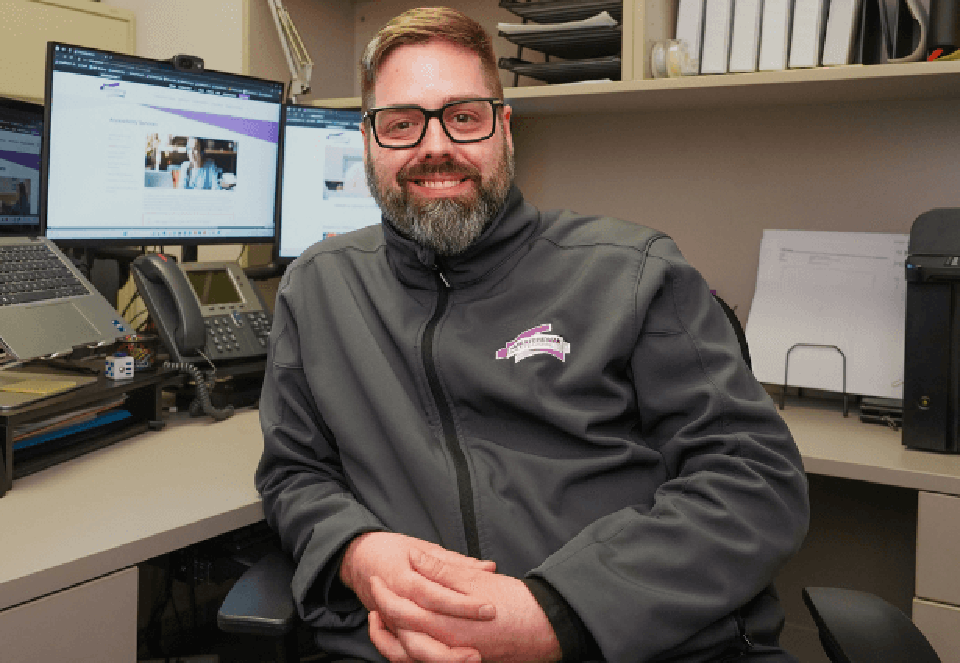PRINCE ALBERT — When Jason Hull meets students in his office at Saskatchewan Polytechnic’s Prince Albert campus, he is sometimes reminded of his younger self.
As an accessibility support advisor, Hull helps students find and access resources to help them succeed in their programs. Whether they are struggling with physical challenges such as mobility or vision differences, or needing support with learning challenges, including specific learning disorders, Hull works with each student to put a plan in place that will ensure equal access to appropriate supports and services to meet their individual needs.
Hull is a Sask Polytech alumnus, having earned his diploma in 2010 and is currently enrolled in the program while working full time at Sask Polytech. He credits an attention deficit disorder (ADD) diagnosis for his success as a mature learner. Without having had his learning challenges formally assessed, Hull believes he wouldn’t be where he is today—and that he may not even have entered post-secondary education.
“I had learning challenges my whole life,” says Hull, who struggled through school, eventually dropping out in grade 11. “Career counsellors steered me towards the trades, but at that point I was looking for jobs I could get with a grade 10 education. I worked construction and factory jobs until I was injured and laid off in my late twenties. At that point I thought, ‘What’s the next chapter? What’s my future going to look like.’ That’s when I decided to figure out what was holding me back.”
His ADD diagnoses encouraged rather than discouraged Hull. “Once I knew what had kept me from learning I was able to move forward,” he explains. Hull, who has Métis heritage, enrolled in adult education classes at Gabriel Dumont Institute where he earned his Adult 12 certificate, then pursued Justice Studies at Sask Polytech.
“I worked with young offenders for a few years, then transferred to adult corrections at provincial remand,” says Hull. “I went on to work for a few years with people struggling with addictions and homelessness. That job had an administrative component and I realized I really liked that aspect of my work.”
Hull wanted to improve his skills in administration beyond what he could learn on the job so he decided to return to Sask Polytech, more than a decade after his first experience with post-secondary education. Enrolling in the one-year Office Administration program took courage because he had to leave his current job and take out a student loan. “Sask Polytech has bursaries for students with disabilities,” says Hull, “and that helped. My partner also supported my decision to leave the workforce to get more education. It was the right choice.”
“There are a lot more resources for adult learners today than there once were,” adds Hull. “I found returning to learning easier this time around. My class had a nice mix of people of different ages and the instructors in my business program were excellent. The learning management system we used, called Brightspace, was robust.”
“I checked the box on the application form advising I have a disability and the rest was easy,” adds Hull. “Accessibility Services reached out to me and set up an appointment. I received the education supports I needed, such as alternate formats for textbooks.”
Near the end of his first semester, Hull saw a job posting on the Sask Polytech careers website for a position with Accessibility Services. “I was really enjoying being back on campus and now I had the skills that matched the position,” he says. Hull was a good candidate, having both credentials and empathy for the students he now assists. “I relate with the students I see every day,” says Hull, “and I’m proud to say that I now help people like me from falling through the cracks.”
— Submitted by Sask. Polytech Media Relations




